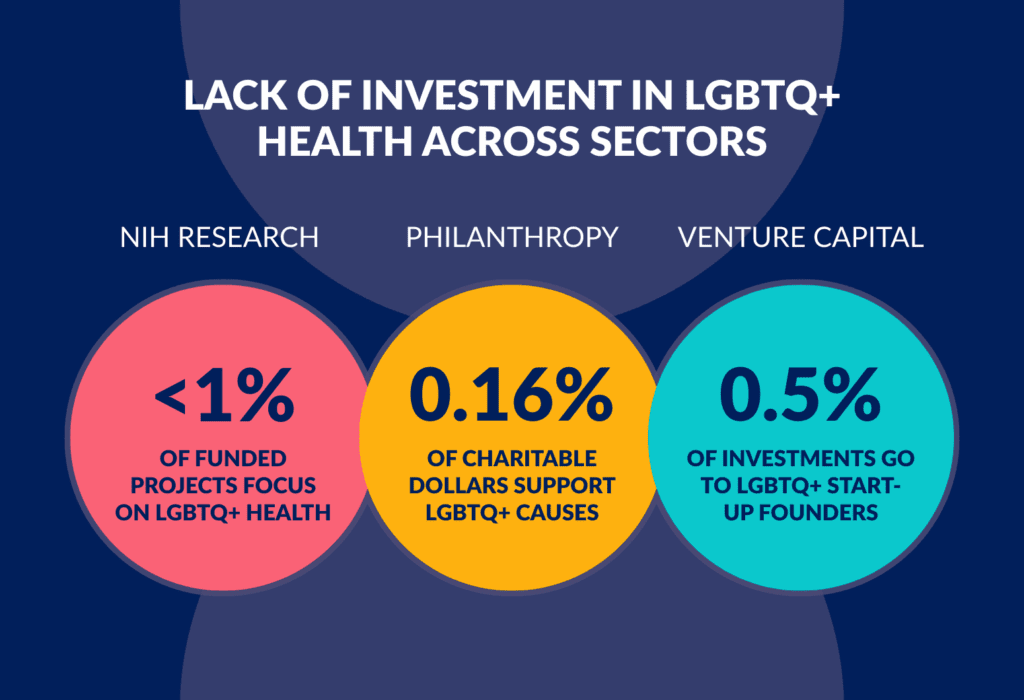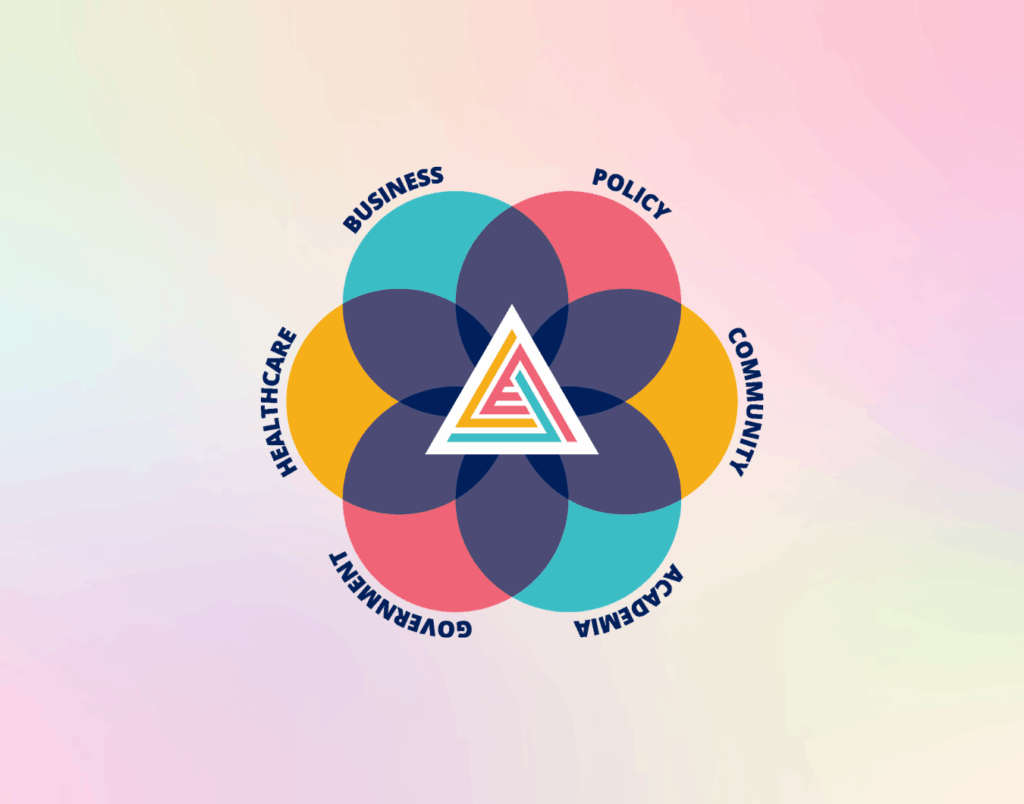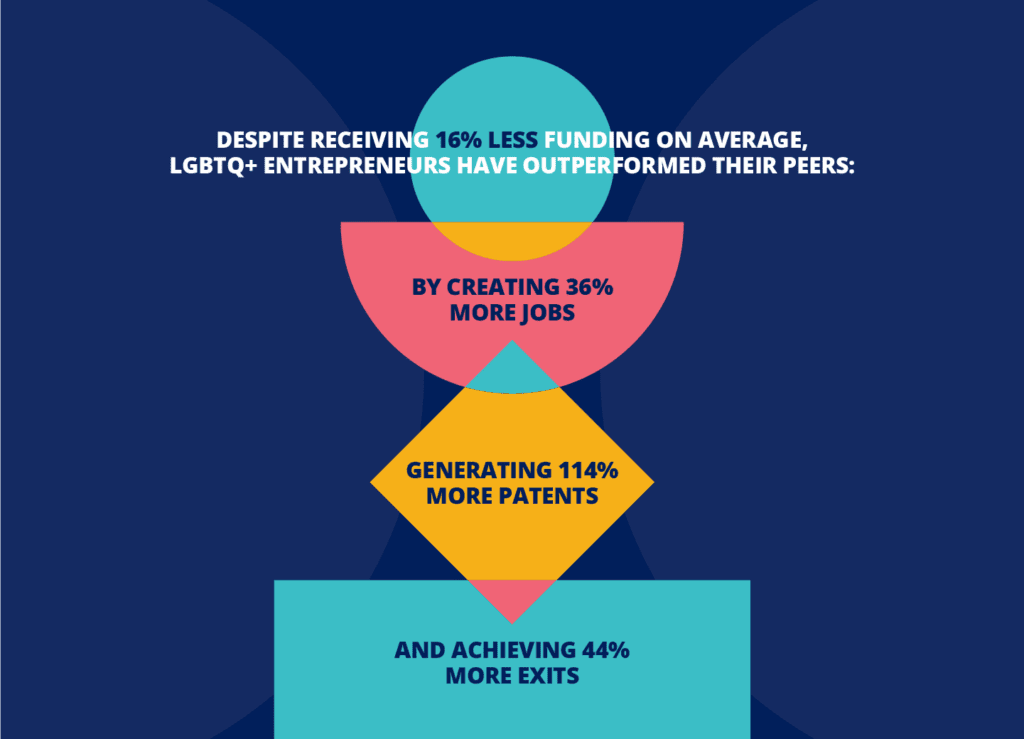While healthcare systems play a critical role in advancing health equity, the forces that shape health and well-being extend far beyond a clinic or hospital setting. Research, philanthropy, business, government, and community life all influence health outcomes. Yet these sectors too often remain disconnected, leaving gaps that deepen disparities for marginalized communities, as well as missing opportunities to build more transformative solutions together.
This disconnect is particularly concerning for LGBTQ+ health, where investment is strikingly limited: less than 1% of NIH’s research portfolio addresses sexual and gender minority health, only 0.16% of charitable dollars support LGBTQ+ organizations, and LGBTQ+ founders receive just 0.5% of the trillions in venture investment. These statistics reflect a system that has under resourced LGBTQ+ health and overlooked the community’s needs.

Bringing sectors together is not simple. Each operates with its own goals, funding structures, and priorities, which makes collaboration difficult. Without shared frameworks or common language, even promising ideas can get stuck, fragmented across systems, underfunded, and never reaching the people they were meant to serve.
Collaboration as a Catalyst for Change
Achieving lasting change requires moving beyond short-term fixes to embrace a multisectoral approach — one that integrates the rigor of science, the flexibility of philanthropy, the reach of business, the influence of policy, and, most importantly, the lived wisdom of communities themselves. At Eidos, we are building that ecosystem: convening leaders across sectors and turning these barriers into opportunities for lasting equity for all.
Our mission is to build a durable innovation ecosystem where insights and investments across sectors are integrated, not isolated. We serve as a convener—bridging silos between academic researchers, philanthropic funders, community advocates, public sector leaders, and private innovators to foster joint accountability and shared success.

Designing and maintaining this kind of ecosystem requires a shared language and mutual understanding across fields: medicine, nursing, public health, business, engineering, law, communication, and the humanities. It also demands that we elevate community voices and expertise as equal partners in shaping the future of LGBTQ+ health.
This inclusive approach may also facilitate the sharing of diverse perspectives and skills when designing new solutions and create a culture that encourages the exploration of ideas safely through disruptive innovation (i.e., challenging established norms of how things are traditionally done).
Where Innovation Can Address LGBTQ+ Health
Persevering through decades of stigma and barriers has positioned LGBTQ+ communities to be resourceful, collaborative, and innovative, often out of necessity. When existing systems did not serve LGBTQ+ people, were not designed for them, or even actively harmed them, communities built their own networks of care and grassroots solutions. Those qualities of perseverance and innovation are not only part of LGBTQ+ history, but also critical to the broader innovation process.
By questioning existing processes and advancing new methods, the innovation ecosystem can adapt and evolve, leading to more efficient, equitable, and sustainable solutions. Through these practices, an innovative ecosystem might create a more inclusive, adaptable, and forward-thinking environment for innovation, collaboration, and policy development. For example, an LGBTQ+ friendly ecosystem can spur economic development through entrepreneurship, job creation, and dissemination of new products, patents, and ideas.

This ecosystem can also generate new data systems and financial models that allow public research, philanthropic capital, and venture investment to co-exist and reinforce one another to advance public health priorities. A shared and mutual commitment to treating diverse social sectors as equal partners — intellectually, strategically, and financially — may yield opportunities for provider education, cultural competence, and community-centered design.
Eidos’s Cross-Disciplinary Mission
At Eidos, we are continuing the vital work of LGBTQ+ activists who have been challenging stigmas and advocating for inclusion for decades. We are dedicated to shaping the future of LGBTQ+ wellbeing and health equity, producing outcomes that benefit all populations and advance public health for everyone.
Since our launch in July 2022, Eidos has endeavored to cultivate intersectoral connections and opportunities for collaboration. By engaging with emerging and experienced leaders from community, academic, civic and business spheres, we help accelerate the development of innovative solutions for the LGBTQ+ community. This new academic model recognizes the promise and value of co-designing/co-owning projects with both public and private partners committed to LGBTQ+ people.
Over the last 3 years, we have convened experts across disciplines and cultivated over 130 conversations with potential partners. As an outcome-focused enterprise, we connect and collaborate with purpose-driven, highly motivated leaders to bridge research and implementation, turning evidence-based strategies into transformative, economically sustainable solutions that may benefit LGBTQ+ communities. And by centering LGBTQ+ community voices in our work, we open a window to community needs as well as create a pipeline for future development opportunities.
The Call to Action
The ingenuity and collaboration that have long sustained LGBTQ+ communities is a foundation to build from. Achieving lasting health equity will require carrying that tradition forward in new ways. Progress cannot come from any single sector or institution; It demands collective action across every sector, and each of us has a role to play: whether advancing inclusive research, directing resources to underserved communities, shaping policy, driving innovation, or amplifying lived experience. At Eidos, we are committed to helping connect these efforts and supporting partners who share this vision. If you’re ready to explore how your work can contribute to this broader ecosystem, we invite you to connect with us and explore the resources we’ve developed to guide and inspire action.